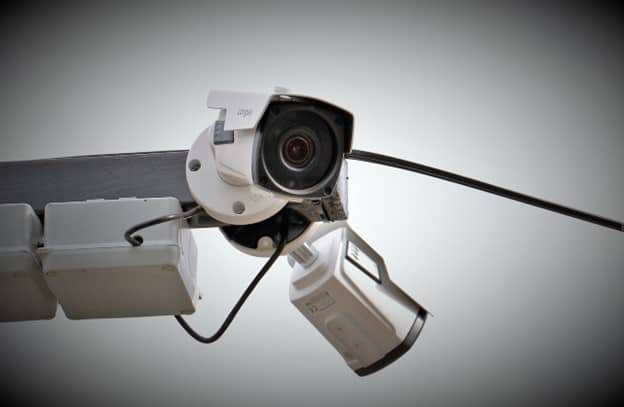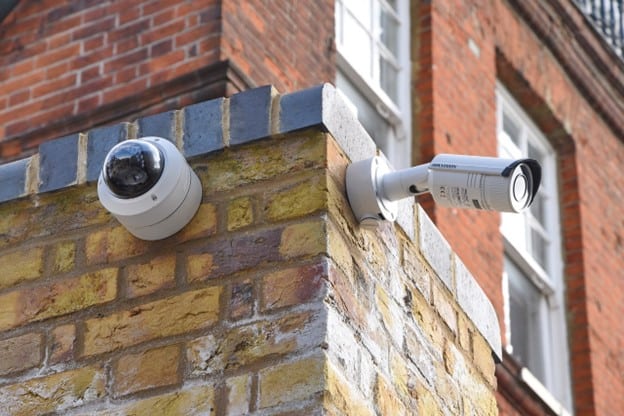Parents often entrust their children to daycares due to work or personal commitments, but may harbor concerns about trusting strangers with their child’s well-being and safety. Common worries include the caregiver’s qualifications, cleanliness of the facility, and quality of care their child will receive.
Parents often raise concerns about whether daycares have cameras installed in their facilities. Some centers have them to monitor children’s activities and ensure their safety. However, laws and regulations regarding video surveillance in daycares vary by state and country. As a result, parents have the right to know if their child is being watched and can request access to any footage in certain circumstances.
Cameras in daycares can offer parents a sense of security and peace of mind, as they can monitor their child’s activities throughout the day. However, camera surveillance may also raise privacy issues and foster mistrust between parents and providers if not implemented correctly.
Do Daycares Have Cameras?
Many daycares have installed cameras to monitor children’s activities while under their care. Cameras provide parents with peace of mind and guarantee children receive proper treatment. However, not all daycares have installed this technology yet or may need additional funds to invest in it.
Even if a daycare has cameras, there may be limitations on their use. For instance, some may only have them in common areas like the lobby or playground. Meanwhile, other daycare centers might have cameras installed in every classroom.
It’s significant to mention that some daycares may only permit parents to view live feeds from cameras. On the other hand, some may allow viewers to view recorded footage as well.
Types of Cameras in Daycares

Before enrolling their children, parents should inquire if the daycare uses cameras. The center must obtain consent from both the parents and caregivers. Essentially, the parents must know what types of cameras daycares have to protect their child’s safety, privacy, and legal rights.
After all, certain cameras, such as hidden ones or those with audio recording capabilities, may cause privacy issues for both children and caregivers. Below are the most common cameras found in daycares that parents should know.
1. Fixed Cameras
If a daycare has cameras, they’re likely fixed cameras. These are the most common type used in such facilities. They’re stationary and usually mounted on the ceiling or walls. These cameras provide a wide-angle view of the room and are advantageous for monitoring large areas.
Fixed cameras are cost-effective and simple to install, plus they require low upkeep. Unfortunately, their mobility is restricted. Once set up, you can’t move or adjust them.
2. PTZ Cameras
PTZ stands for “pan, tilt, and zoom.” These motorized cameras can be remotely controlled to pan, tilt and zoom in on different room areas.
PTZ cameras offer more versatility than fixed cameras, allowing you to monitor specific areas or children. However, they tend to be more costly and require additional upkeep compared to fixed cameras.
3. Hidden Cameras
Hidden cameras are cameras that are hidden from view and disguised as everyday items like clocks, picture frames, or stuffed animals. They’re useful in monitoring areas where children may be unsupervised, such as nap rooms or bathrooms. However, they may pose privacy issues and raise controversy.
4. 360-Degree Cameras
360-degree cameras offer a panoramic view of an entire room. They’re great for monitoring large areas and can capture any activity that takes place there. Unfortunately, 360-degree cameras tend to be more costly than fixed cameras and require additional maintenance over time.
What Are the Laws, Rules, and Regulations Regarding Camera Surveillance in Daycares?

As mentioned earlier, the laws, rules, and regulations regarding cameras in daycare centers vary from state to state. Generally, daycare centers must adhere to state and federal laws regarding privacy protection and surveillance.
The Family Educational Rights and Privacy Act (FERPA) safeguards student educational records. This law applies to daycare centers receiving federal funding, prohibiting the disclosure of personally identifiable information from educational records without parental or guardian consent.
Some states have strict regulations regarding cameras in daycare centers. Texas, for instance, requires daycares with cameras to notify parents of their usage and provide access to footage upon request. Meanwhile, Illinois only permits cameras in daycares with parental and staff consent.
Understanding Your Rights as a Parent

Parents have the right to know whether a daycare has cameras and how they’re utilized. If a daycare has cameras installed, parents should ask about the policies and procedures surrounding their use, including who has access to the footage and how long it’s stored.
Parents also have the right to request access to the footage. However, this may be subject to certain limitations, such as only viewing live feeds or needing written consent.
If a parent has concerns about their child’s safety or well-being in a daycare, they should bring these to the attention of the daycare’s management or licensing agency. In certain instances, law enforcement or child protective services may also be necessary.
The Pros and Cons of Camera Surveillance in Daycares

Although using cameras in daycare centers can offer several advantages, parents must also weigh the potential drawbacks. Here is a breakdown of the pros and cons associated with daycare centers equipped with cameras:
Pros:
1. Increased safety
Cameras can help deter potential intruders or abusive behavior by staff members. They also guarantee children are safe from accidents or injuries.
2. Improved communication
Cameras can enhance communication between parents and staff members. Parents can monitor their children remotely, checking in on their well-being throughout the day. This promotes a more open line of communication and enhances staff-parent understanding.
3. Accountability
Cameras in daycares can help hold staff accountable for their actions, which in turn helps reduce the risk of negligence or abuse.
4. Peace of mind
Cameras provide parents with the reassurance that their children are in a secure, safe environment.
Cons:
1. Invasion of privacy
For some parents or staff members, cameras may be seen as an invasion of their privacy. They may feel uncomfortable being monitored or worry that footage could be shared or misused without consent.
2. False sense of security
Cameras can give parents a false sense of security. Just because a daycare center has cameras doesn’t necessarily mean that their child is completely safe.
3. Cost
Installing and maintaining cameras can be costly. These expenses may be passed along to parents in the form of higher fees.
4. Technical issues
Cameras can experience technical issues, such as malfunctions or glitches. This can lead to gaps in surveillance and a false sense of security.
Final Thoughts
Whether or not daycares have cameras installed varies from daycare to daycare. The laws, rules, and regulations surrounding its usage differ from state to state.
While cameras in daycare centers can provide some benefits, weighing the pros and cons before deciding is crucial. It’s up to each parent to determine whether or not they feel comfortable with their child being monitored by cameras while in daycare.